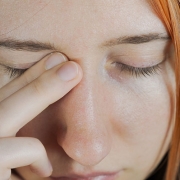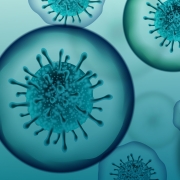Adolescent Health 101: 8 Tips for Staying Healthy as a Child and Teen
Childhood and adolescence are among the most important stages of any person’s life. And while this probably isn’t news to you, it bears repeating. The amount of growth and development the body experiences during these periods of time are astounding. Simply put, the body changes during childhood and adolescence—a lot.
During childhood and adolescence, it can even seem like the body is constantly in flux. The changes come so rapidly that it may be difficult to monitor your child’s health—both physical and mental. Whether you’re a parent searching for facts and tips about your child’s health or a teen looking to read up on your health, you’ve come to the right place! After all, what better place to start than the basics?
The list below breaks down some of the most important (and interesting) facts about childhood and adolescent health.
1. A fast metabolism doesn’t mean you can forget about nutrition:
Adults often bemoan the fact that metabolism slows with age. That is, the body becomes less quick and efficient at breaking food down and turning it into energy the older it gets. So while children and teens can—and often do—scarf down four bowls of pasta without immediate consequences, that same amount of food might have lasting effects on an adult (and their waistline).
This fact leads many people to believe children, especially teenagers, can eat just about anything while maintaining their health. Unfortunately, this isn’t exactly true. Children and teenagers can eat a lot of food, but that’s because the body is doing a lot of growing. That means it requires a lot of energy. And to provide it with the energy it needs, good nutrition is key.
The fundamentals of good nutrition stay the same from childhood to adulthood: you should strive to eat a well-balanced diet that includes lots of fresh fruits and vegetables, whole grains, plant-based fats, and quality, lean protein.
2. Teens and children should steer clear of adult beverages—and not just alcohol:
It goes without saying, children and teens shouldn’t drink alcohol. While the brain is still developing, alcohol consumption can have lasting, negative consequences. That being said, alcoholic beverages aren’t the only drinks to keep away from teens.
As of 2014, the CDC reported that 73 percent of children consume caffeine daily. While children under the age of 12 should avoid consuming caffeine altogether, teens can drink small amounts of caffeine without impacting their health. Here’s the problem: the amount of caffeine teens take in depends on what they’re drinking. And energy drinks are popular among teenagers.
Teens 14-17 years old are advised to consume no more than 100 milligrams (mg) of caffeine each day—roughly one strong cup of coffee. Some energy drinks contain triple that amount of caffeine in one can. And many teens are drinking multiple energy drinks a day. You don’t have to be good at math to know that is way, way over the recommended limit.
So why does this matter? Children and teens are physically smaller than adults, so they feel the effects of caffeine much more strongly than, say, most people working office jobs. What’s more, teens’ brains are still developing and maturing. Caffeine can also disrupt teenagers’ sleep cycles—and sleep is a crucial time for brain development. In extreme cases, excessive caffeine intake can even put teens’ hearts at risk.
3. Sleep is a vital aspect of teen health and wellness:
Ask nearly anyone how much sleep you should get, and they’ll likely give you the same answer: eight hours. And while eight hours is a good guideline for adults, the recommended amount of sleep for healthy teenagers is between eight and 10 hours.
Between the demands of school, work, friendships, and other relationships, it can be hard for teenagers to prioritize sleep. But here’s why it’s important: Sleep plays an important role in pretty much every neurological process and function—memory, risk assessment, processing sensory input, you name it. And as a teen, your brain is still developing and making neural connections. Sleeping enough is crucial to allow those connections to be made.
4. Sunscreen is no joke:
While sunburns may seem like no big deal in the moment, they can have lasting impacts on your health. Excessive sun exposure—whether it’s frequent sunburns, extreme sunburns, or even too much tanning—can lead to premature aging of the skin. This means seeing wrinkles younger in life, and, in some cases, increased risk for skin issues.
This doesn’t mean staying out of the sun entirely. You can still go to the beach, swimming pool, or take a long walk on a sunny day—just be sure to wear sunscreen. And not just any sunscreen. The higher the SPF rating, the better.
As a guideline, 15 SPF is appropriate for daily wear, but for extended periods of sun exposure, you should aim to wear 30 SPF sunscreen or higher. And don’t forget to reapply every two hours, as needed!
5. Take care of your ears:
No, seriously. Ear health may seem like a strange topic to talk about, but it’s no joke. And it’s one of the most frequently overlooked aspects of adolescent health. With the proliferation of affordable smartphones, earbuds, mp3 players, and headphones, virtually everyone can listen to music anywhere.
This isn’t necessarily a bad thing. But here’s the problem: teens and children (and even adults) often don’t understand the risks of listening to loud music for prolonged periods of time. And, as a result, many teens listen to music at dangerously high volumes. Blasting music through your headphones or earbuds will damage the cells in your cochlea, increasing your risk for hearing loss and tinnitus (ringing in the ears). So take care of your ears while you’re young—future you will be grateful!
6. Teens should exercise regularly:
When it comes to adult health, consistent exercise is one of the most oft-cited aspects of a healthy lifestyle. Similarly, exercise is a vital element of teen health.
You’ve probably come across a variety of suggestions for how much exercise teens should do: 30 minutes daily, 30 minutes six times a week, 60 minutes three times a week—you get the idea. If you average out these various suggestions, here’s the bottom line: teens should get somewhere between 180 and 210 minutes of exercise each week. This could be swimming, cycling, going to dance practice, walking the dog—it doesn’t matter. What matters is that you are revving your heart rate up.
While regular exercise will help keep your body healthy, the benefits aren’t purely physical. Regular exercise can help teens with mood regulation, alleviate stress, and get better sleep. All good important aspects of adolescent health.
7. Dental health is health, too:
As a teen, it’s easy to feel invincible. Your body bounces back from most injuries and your brain hasn’t fully developed its risk-assessment abilities. This combo can lead teens to make some, well, rash decisions. It can be hard to see the big picture.
When it comes to dental health, however, it’s all about the big picture. Once your baby teeth fall out, you have one set to last the rest of your life— so it’s important to take care of them. Ask adults what they wish they’d done differently in their teens and twenties, and many will give the same answer: they wish they’d taken better care of their teeth.
Dental health doesn’t have to be complicated, but it requires consistency. Be sure to brush and floss at least every night and you’ll keep your oral health thriving for the years to come.
8. It’s never too early to prioritize mental health:
One of the most common misconceptions about mental health is that only adults suffer from these kinds of issues. While early adulthood is a very common time for many mental health challenges to emerge, anyone, no matter their age, can experience change in mental health. In fact, one in about five teens has a diagnosed mental health disorder.
So what does this mean for you? Whether you experience mental health challenges or not, it’s never too early to prioritize your mental health. For teens, this might mean taking a break from social media, seeing a therapist, and, in some cases, taking medication prescribed by your healthcare provider. It’s all about finding what works for you and not waiting until adulthood hits to address any issues.
References
https://stacks.cdc.gov/view/cdc/37854
https://healthblog.uofmhealth.org/childrens-health/parents-perk-up-to-dangers-of-caffeine-for-teens
https://www.sleepfoundation.org/teens-and-sleep
https://www.hcf.com.au/health-agenda/food-diet/nutrition/is-caffeine-safe-for-teens
https://www.who.int/news-room/fact-sheets/detail/adolescents-health-risks-and-solutions
https://familydoctor.org/teenagers-how-to-stay-healthy/
https://www.verywellhealth.com/the-7-biggest-health-risks-teens-face-2611248















